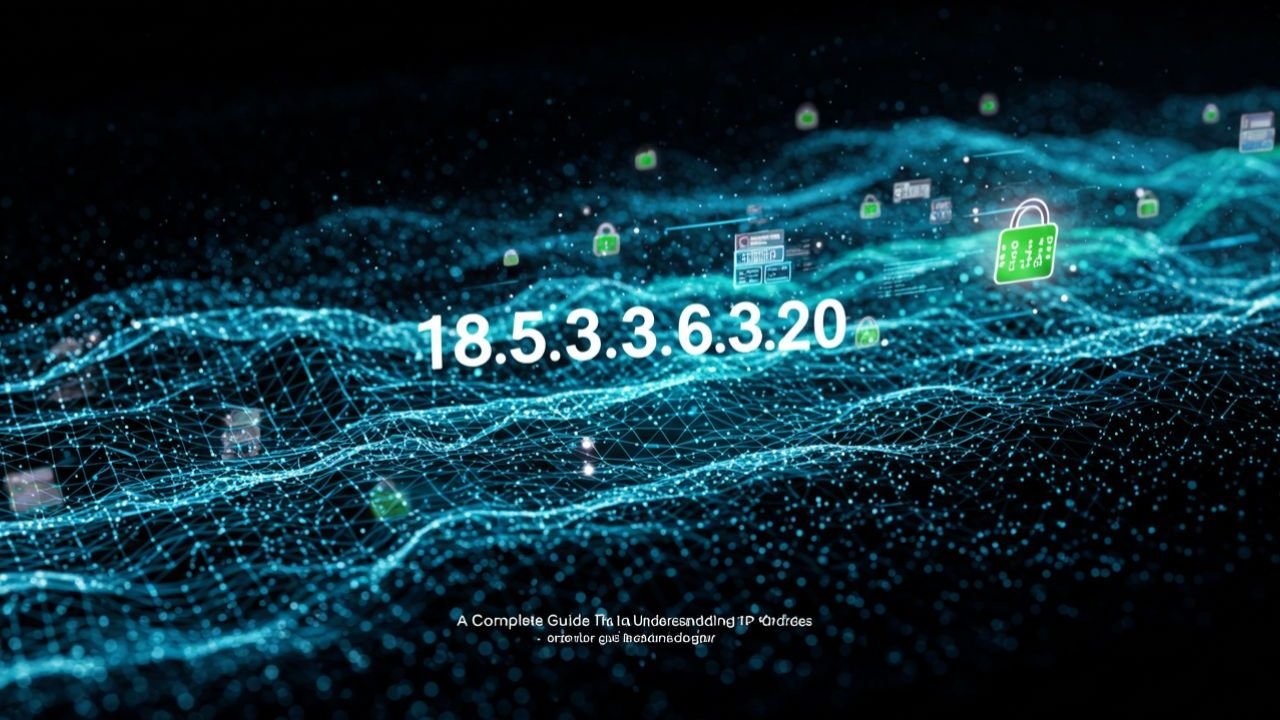185.63.263.20 Explained: Key Insights for Tech Enthusiasts
Introduction to IP Address 185.63.263.20
In today’s digital landscape, understanding IP addresses is crucial for anyone interested in technology. Among the myriad of numerical combinations that exist, 185.63.263.20 stands out as a unique identifier in the vast web of internet connections. But what does it actually mean? How does it function within our tech-savvy world? Whether you’re a seasoned IT professional or just starting your journey into networking, unraveling the intricacies behind this IP address can provide valuable insights and enhance your knowledge base. Let’s dive deeper into the fascinating realm of 185.63.263.20!
What is an IP Address and How Does it Work?
An IP address is like a digital home address for devices connected to the internet. It allows computers, smartphones, and servers to communicate with each other by identifying their location on the network.
Every device requires an IP address to send and receive data packets. This unique identifier ensures that information reaches its intended destination without confusion.
IP addresses come in two main types: IPv4 and IPv6. While IPv4 uses a 32-bit format, resulting in about 4 billion possible addresses, IPv6 expands this capacity dramatically with its 128-bit structure.
When you access a website or stream a video online, your device sends requests using your IP address. The server hosting the content responds by sending data back to that specific address, enabling seamless interaction across the web.
Understanding the Components of 185.63.263.20
The IP address 185.63.263.20 consists of four distinct segments, commonly known as octets. Each octet is a decimal representation that ranges from 0 to 255.
Here, the first segment “185” indicates the network portion and identifies the broader subnet where this address resides. It’s essential for routing data across networks.
The second segment “63” often narrows it down further within that subnet, helping to pinpoint specific devices or groups of devices.
Next comes “263,” which exceeds the valid range for an octet in IPv4 addresses since it should be between 0 and 255. This reveals a common misconception about formatting or typographical errors when dealing with IP addresses.
Lastly, “20” serves as a host identifier on that network, allowing communication with specific devices directly linked to this unique address.
The Importance of IP Addresses in the Tech World
IP addresses form the backbone of digital communication. They act as unique identifiers for devices connected to a network. This ensures that data sent across the internet reaches its intended destination.
For businesses and individuals alike, understanding IP addresses is crucial. They facilitate everything from web browsing to online gaming. Without them, navigating the vast expanse of the internet would be chaotic and inefficient.
Additionally, IP addresses play a significant role in cybersecurity. Knowing your IP can help you monitor suspicious activity related to your accounts or networks. Organizations rely on this knowledge to safeguard sensitive information from cyber threats.
Furthermore, they enable geolocation services that personalize user experiences online. Whether it’s targeted ads or localized content delivery, having access to accurate location data enhances engagement significantly.
In an increasingly interconnected world, appreciating the function of IP addresses is essential for anyone involved in technology today.
Common Uses for IP Address 185.63.263.20
IP address 185.63.263.20 serves multiple purposes in the digital landscape. It’s often associated with web hosting services, where websites are stored and accessed by users across the globe.
Businesses leverage this IP for their online presence, ensuring that customers can reach their platforms seamlessly.
Another common use is in email servers, allowing organizations to manage communications effectively. This enhances both security and reliability while communicating with clients or partners.
Moreover, developers might utilize this IP for testing applications or services before launching them publicly. By simulating various scenarios through specific addresses, they ensure optimal performance and security measures are in place.
Users may encounter it during a VPN connection as well, providing anonymity while browsing the internet safely and securely from different locations around the world.
Potential Security Risks and How to Protect Your IP Address
IP address 185.63.263.20, like any other IP address, can be susceptible to various security threats. Cyber attackers may exploit vulnerabilities associated with this address to launch attacks or gain unauthorized access to networks.
One common risk is DDoS (Distributed Denial of Service) attacks, where malicious users overwhelm a server by flooding it with traffic, leading to service disruptions.
Another concern is IP spoofing, where an attacker disguises their real IP address as yours for illicit activities.
To safeguard your internet presence, consider using a VPN (Virtual Private Network). This adds a layer of encryption and masks your actual IP address while you browse online.
Regularly updating software and firewalls also helps in fortifying defenses against potential intrusions. Awareness and proactive measures are key components in protecting your digital footprint effectively.
Conclusion: Embracing the Power of Technology with 185.63
Embracing the power of technology with 185.63 opens a realm of possibilities for tech enthusiasts and everyday users alike. Understanding IP addresses, like 185.63.263.20, enables us to navigate the digital world more effectively.
As we delve deeper into how these numbers function behind the scenes, we become better equipped to leverage their capabilities for our needs—from ensuring secure connections to exploring innovative uses in networking.
Awareness of security risks associated with specific IP addresses empowers individuals and organizations alike to take proactive measures in protecting their data and privacy online.






